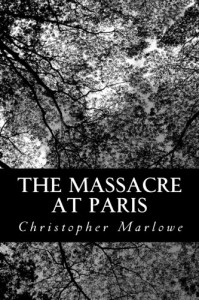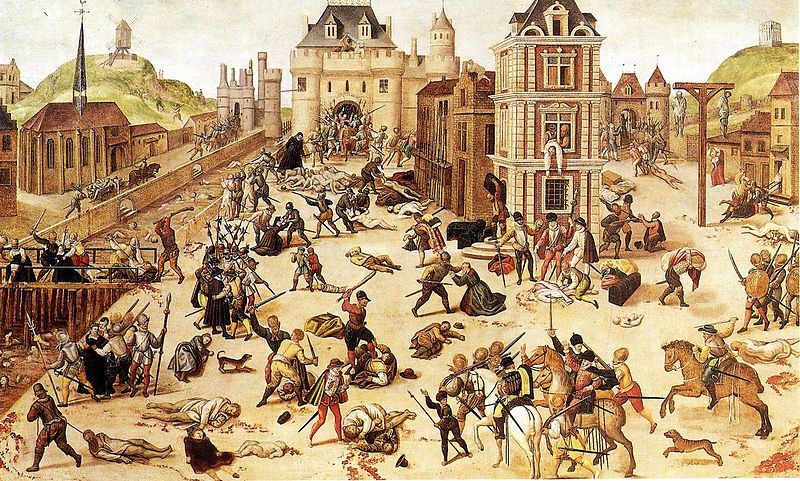Remembering St Bartholemew's Day

I do find it difficult to give low ratings to literature that tends to predate the modern commercial age, but sometimes you must wonder why some pieces seem to have survived at all. Granted, one can forgive the great playwrights and authors of the past for writing rubbish (because doesn't everybody, even the greatest, write rubbish), but sometimes one must raise the question as to whether the particular playwright could have done much better. As for this play, I feel that this commentary pretty much nails this play on the head (pardon the cliché, but for those who don't like cliches, all I can say is 'bite me').
The thing about this play is that it is about an event that I don't think that we, as modern, even post-modern, westerners, should actually forget. To me, the event that this play records is almost on par with the Nazi holocaust (and please do not suggest that nothing is on par with the Nazi holocaust because I can point out many events that are – the Rwandan genocide for instance).
The St Bartholemew's day Massacre actually occurred within Marlowe's lifetime (1572) so not only would it have been fresh in the memory of Marlowe, but also with many of those who saw the play performed. To put it simply, it was when the French Catholic rulers went around systematically murdering the French protestants to the point that there were actually no protestants left in France, and one of the main reasons why France never developed its own protestant denomination (namely because they had all been killed).

The Huegenots, the French Protestants, had formed strongholds in the west and the south of the country. They had its base in the Kingdom of Navarre and for a while had been in armed conflict with the French Catholics. However a peace treaty had been signed and, as was typical in those days, the treaty was consummated by the marriage between Catherine of France and Henry of Navarre. So, as the marriage was underway, many of the high ranking Huegenots travelled to Paris for the ceremony, which was a mistake because having so many high ranking Huegenots present in the enemy city was simply asking for trouble, which is what happened. What started off as a number of targeted assassinations quickly descended into mod violence, with French Catholics charging around the country and urban centres killing any Huegenot they could find (and I suspect that there was also quite a bit of scores being settled as well, which is generally what happens when chaos reigns).

The effect of this was to cement Catholicism within France, but to also alienate many of the protestant countries, who, in response, condemned the actions of the French government and the Catholic church. However this was not the end of the conflict because after securing France, trouble began to arise within the German and Dutch states which led to the 30 Years War. While the war came out as a stale mate, it did result in a draft 'rules of war' which has since become the Geneva Convention (not that anybody actually pays any attention to it). However, Spain was crippled by the event, with the Dutch insurrection effectively bankrupting them, and their fleet being destroyed while trying to attack England.
It is quite clear that the English themselves did not want to forget this event, since we have retained Marlowe's plays, and it was performed throughout the 17th century (when it could be performed, since for a period all of the theatre's were shut down), and a new version came out during the Restoration (probably to remind the people of what can come about from religious wars).
 3
3


